
Helen Thompson is a freelance producer and former associate digital editor at Science News. She makes videos, builds interactives, wrangles cats and occasionally writes about things like dandelion flight and whale evolution. She has undergraduate degrees in biology and English from Trinity University in San Antonio, Texas, a master’s degree in science writing from Johns Hopkins University in Baltimore, Maryland, and strong opinions about tacos. Before Science News, she wrote for Smithsonian, NPR.org, National Geographic, Nature and others.

All Stories by Helen Thompson
-
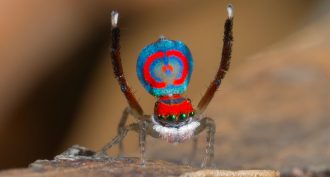 Animals
AnimalsPeacock spider’s radiant rump comes from teeny tiny structures
Male peacock spiders have highly colored hind ends that they shake to attract females. Scientists have now figured out the physics responsible for those hues.
-
 Health & Medicine
Health & MedicineU.S. to outlaw antibacterial soaps
Soaps with germ-killing compounds promise cleaner hands. But manufacturers couldn’t show they offer any safety advantage. Now the U.S. government is banning them.
-
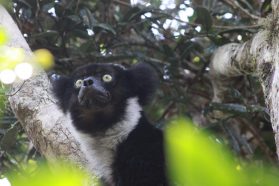 Animals
AnimalsSinging lemurs sync up — until one goes solo
The indri lemurs of Madagascar sing in chorus to mark their territory. But young males sometimes solo, which may help them attract a mate.
-
 Animals
AnimalsSnot may be key to dolphins’ tracking of prey
Dolphins produce clicking noises that bounce off of prey, like sonar, showing where they are. Mucus in the animals’ nasal passages may make that ‘sonar’ work.
-
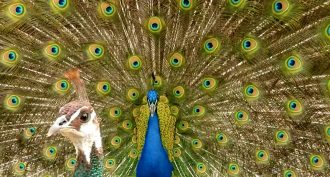 Animals
AnimalsMale peacocks twerk it to bring in the hens
Scientists recorded peacocks with high-speed video cameras to learn the basic mechanics behind the shows they put on for peahens.
-
 Health & Medicine
Health & MedicineWhy Paralympic sprinters have trouble with curves
Whether an artificial leg is on the right or left side of the body may affect how fast runners can take a turn.
-
 Environment
EnvironmentEnormous natural-gas leak polluted L.A. air
A massive methane release from a single leaky underground well spewed as much of the greenhouse gas into the air as a mid-sized European country does in an entire year.
-
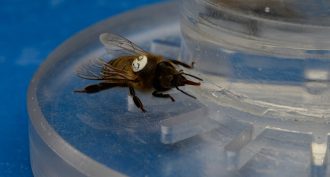 Animals
AnimalsNews Brief: Bees prefer caffeine-spiked nectar
Bees usually alert friends to sources of especially sweet nectar. But a new study finds caffeine is every bit as appealing to them as the sugar is. And that could compromise the quality of their honey.
-
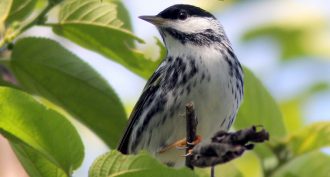 Animals
AnimalsNews Brief: Tiny songbird is mega-flier
With no pit stops for refueling, this tiny bird wings it from Canada to South America.